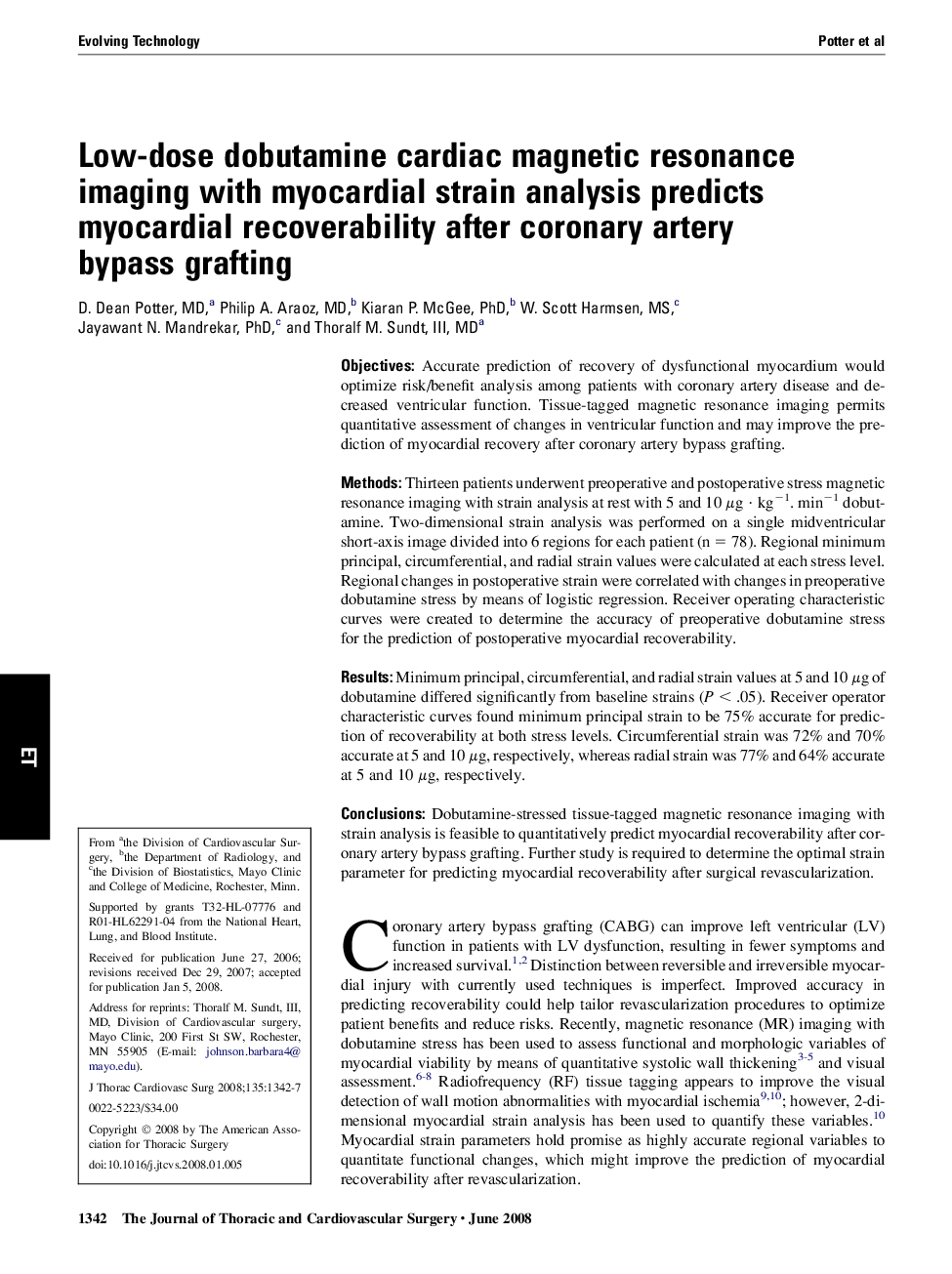| Article ID | Journal | Published Year | Pages | File Type |
|---|---|---|---|---|
| 2985106 | The Journal of Thoracic and Cardiovascular Surgery | 2008 | 6 Pages |
ObjectivesAccurate prediction of recovery of dysfunctional myocardium would optimize risk/benefit analysis among patients with coronary artery disease and decreased ventricular function. Tissue-tagged magnetic resonance imaging permits quantitative assessment of changes in ventricular function and may improve the prediction of myocardial recovery after coronary artery bypass grafting.MethodsThirteen patients underwent preoperative and postoperative stress magnetic resonance imaging with strain analysis at rest with 5 and 10 μg · kg−1. min−1 dobutamine. Two-dimensional strain analysis was performed on a single midventricular short-axis image divided into 6 regions for each patient (n = 78). Regional minimum principal, circumferential, and radial strain values were calculated at each stress level. Regional changes in postoperative strain were correlated with changes in preoperative dobutamine stress by means of logistic regression. Receiver operating characteristic curves were created to determine the accuracy of preoperative dobutamine stress for the prediction of postoperative myocardial recoverability.ResultsMinimum principal, circumferential, and radial strain values at 5 and 10 μg of dobutamine differed significantly from baseline strains (P < .05). Receiver operator characteristic curves found minimum principal strain to be 75% accurate for prediction of recoverability at both stress levels. Circumferential strain was 72% and 70% accurate at 5 and 10 μg, respectively, whereas radial strain was 77% and 64% accurate at 5 and 10 μg, respectively.ConclusionsDobutamine-stressed tissue-tagged magnetic resonance imaging with strain analysis is feasible to quantitatively predict myocardial recoverability after coronary artery bypass grafting. Further study is required to determine the optimal strain parameter for predicting myocardial recoverability after surgical revascularization.
